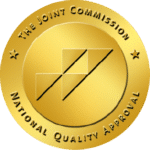Tarzana, South Bay, and Santa Monica
Ketamine Therapy, TMS
and CBT.
This Program is Changing Lives.
IOP level of treatment is 3 or more hours per day for 3 to 5 days per week.
We are not in network with any PPO insurance plans, but we can accept them as an out-of-network provider.
We know how difficult it is to get through a large deductible, and still be able to get help for yourself or family. We offer monthly payments options, and we are also affiliated with the medical finance options below, you can be able to finance your treatment at Clear Mind.
We recommend refinancing with SoFi for a variety of reasons, and medical debt is no exception. While it doesn’t have a specific program for medical debt, most personal loan lenders will allow you to use a personal loan for just about anything, medical expenses typically included.
SoFi has some of the lowest APRs of any lender, with fixed rates ranging from 5.99% to 17.67%, and variable rates ranging from 6.40% to 12.70%. You can refinance $5,000 to $100,000 on 24 to 84 month terms as well.
The minimum FICO score is 680. Having a stable employment and education history will help you qualify for a better rate, too. You must be employed to be approved for a loan, and SoFi’s personal loan isn’t available to residents of Mississippi.
SoFi uses a soft pull to provide you with estimated rates, and if you want to move forward with the loan, then it will use a hard credit pull. That means you can see if the loan is workable for you before committing and before having the inquiry impact your credit.
There are also no hidden fees with SoFi, so what you see is what you get in terms of the loan amount as there is no origination fee and no pre-payment penalty.
Earnest is similar to SoFi in terms of its low APRs. Fixed APRs range from 5.99% to 17.24%, with terms that go from 36 to 60 months. With Earnest you can refinance $5,000 up to $75,000.
The only downside to Earnest is that it isn’t available in many states. You must be a resident of the following states to be approved: AK, AR, AZ, CA, CO, CT, FL, GA, HI, IL, IN, KS, MA, MD, ME, MI, MN, MO, NC, NE, NH, NJ, NM, NY, OH, OK, OR, PA, SC, TN, TX, UT, VA, WA, Washington DC, WI, WV, and WY.
If you don’t reside in a state on this list, check back often as Earnest has been adding several states to its roster over the last year.
You should have a minimum credit score of 680 to be approved for a loan with Earnest, though it also takes into account your savings, employment history, education history, and income. You can apply for a loan using your LinkedIn account (which pre-fills some fields for you), but it isn’t necessary.
Earnest doesn’t have origination fees or pre-payment penalty fees, though it does use a hard credit inquiry when you complete the application. According to its FAQ, it is working on building a tool that will give you preliminary rates and terms on a personal loan without a hard pull.
LightStream is an online division of SunTrust and offers great deals on personal loans. $5,000 up to $100,000 on terms ranging from 24 to 144 months. Fixed APRs range from 4.99% to 16.79%, and there is No origination fee. Rates do vary based on the term you select, so be sure to look at all your options here.
LightStream has one of the faster application processes – if you get all the necessary documents in by 2:30pm ET, you may be eligible for same-day funding. Additionally, if you’re unhappy with the services provided by LightStream, its customer service is backed by a $100 guarantee.
LightStream requires a hard credit inquiry, which makes it a slightly less attractive option. You might want to check with the personal loan lenders that use a soft credit pull first.
Although OCD symptoms generally fall into one of these five subtypes, it is possible to experience a change in the nature and focus of your symptoms over time.
Those suffering from this symptom subtype will usually focus on feelings of discomfort associated with germs/contamination and will wash and clean excessively.
Those experiencing this symptom subtype will often have intense thoughts regarding possible harm, either to themselves or others, and will use checking rituals to relieve their distress.
Those experiencing this symptom subtype will often have unwanted obsessions regarding sexual, religious, or aggressive themes. Triggers related to these obsessions are usually avoided at all costs.
Those suffering from this symptom subtype may feel a strong need to rearrange objects constantly. It can also involve thinking or saying sentences or words over and over again until one feels it has been accomplished perfectly.
This symptom subtype involves the collection of items of little or no value until one’s living space is consumed with so much clutter it becomes difficult to live in. This is often accompanied by obsessive fears of losing items that one feels may be needed one day.
Obsessions are persistent and unwanted thoughts, feelings, or images that cause distress or anxiety. Those with OCD may try to ignore them by performing a compulsive behavior. Obsessions typically intrude when you’re going about your daily life, often getting in the way of your personal goals.
Compulsions are repetitive behaviors that you feel as if you have to perform. Usually, these compulsions are to reduce anxiety from obsessive or intrusive thoughts. However, these compulsions often only provide temporary relief from tension.
Someone with OCD may make up rules or rituals they follow to help control this anxiety when having obsessive thoughts. These compulsions are usually excessive and not realistically related to the problem they’re intended to fix.

Some factors that may increase the risk of triggering OCD may include:
The exact cause of OCD still isn’t fully understood by science. Some theories include:
There is no surefire way to prevent OCD. Getting treatment as soon as possible can help prevent OCD from worsening and negatively affecting your life. Some people with previously treatment-resistant OCD have experienced great success with the advent of Ketamine Infusions, an innovative new treatment option.
Exactly how Ketamine treats OCD and other mental health disorders are still being researched. The current understanding is that Ketamine binds to receptors in the brain that increases the amount of a neurotransmitter, glutamate, is released. This will then set off a chain of reactions within the brain that affects thinking and emotional regulation.
To put this in simpler terms, the brain reacts to Ketamine in a way that triggers hormones that help create more positive emotions. This can occur within minutes after a person receives their infusion, but some people may need several treatments before they experience the highest level of benefits.
FIND RELIEF WITH CLEAR MIND
Schedule a free confidential consultation with a member of our team. Get your questions answered quickly.
Our Locations:
Certification Number: 191268AP
Expiration: 9/30/2025



Clear Mind Treatment is an intensive outpatient healing center that helps individuals struggling with depression, anxiety, trauma and related mental health concerns. Our beautiful, private facility welcomes clients to take part in our uniquely individualized treatment program.

LGBTQIA-Friendly Environment

We proudly work with veterans, police officers, firefighters, and first responders. Post-traumatic stress disorder (PTSD), trauma therapy and treatment. Have you or a loved one witnessed and or lived through a traumatic, scary, shocking or stressful event? PTSD therapy and treatment might be right for you!
